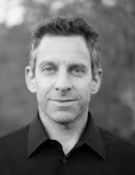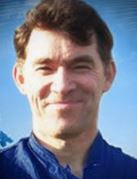|
TRANSLATE THIS ARTICLE
Integral World: Exploring Theories of Everything
An independent forum for a critical discussion of the integral philosophy of Ken Wilber
 Since 1990 Gary Stogsdill has been a faculty member at Prescott College where he currently teaches courses in humanistic mathematics, science appreciation, and wisdom studies. He has a blog called "Pursuing Wisdom Now", which features articles on contemporary spirituality. Since 1990 Gary Stogsdill has been a faculty member at Prescott College where he currently teaches courses in humanistic mathematics, science appreciation, and wisdom studies. He has a blog called "Pursuing Wisdom Now", which features articles on contemporary spirituality.
SEE MORE ESSAYS WRITTEN BY GARY STOGSDILL U up?Thoughts on Spiritual WakefulnessGary StogsdillIntroduction
By exploring the views of Wilber, Harris, and Taylor regarding spiritual wakefulness, we might find inklings of a possible paradigm shift.
Ever since a young Siddhartha emerged from the forest with a radiant countenance and announced, “I am awake” (I am Buddha), the notion of enlightenment or spiritual wakefulness has captured the fancy of those who believe in higher potential for humans. Ancient India and Ancient Greece both excelled in producing teachers claiming to be more awake than the rest of us. Notable from Ancient Greece was Empedocles, who also assured us he was a god-like being and according to legend decided to prove his immortality to his followers by leaping into the volcanic crater of Mt. Etna. (Perhaps he should have thought that one through a bit more.) In more recent times, the Armenian mystic and amoral scoundrel G. I. Gurdjieff made a comfortable living by convincing others they were asleep compared to him. Throughout the 20th century a steady stream of gurus from India and elsewhere journeyed to America and Europe to teach the rest of us how to awaken. The notion that humans can wake up from ordinary consciousness formed the centerpiece of New Age thought and helped to spawn a multi-billion-dollar self-help industry. One could argue that every spiritual teacher and self-help guru throughout history has offered variations on but one theme: Wake up! Without question, it's a compelling metaphor. When we awaken each morning it's a whole new level of consciousness. If I use myself as an example, it's often the difference between no awareness at all and suddenly...oh my goodness, it's me again, I'm still alive! Especially when we're having a bad dream, it's really nice to wake up. The perennial promise from spiritual and self-help teachers that we can accomplish this waking up on a whole new level is nothing if not enticing. My own study and experience of spiritual teachers agrees with the conclusion of many others including Mariana Caplan in Halfway Up the Mountain: the so-called awakened ones have usually had one or more peak experiences that convince them they've attained a state of consciousness the rest of us have not. As the glow of the initial peak experience begins to soften, are these awakened ones different from the rest of us? Probably both yes and no. Each of our notable life experiences makes us a more or less different person. But the endless list of spiritual teachers who behave poorly and even appallingly (see Geoffrey Falk's Stripping the Gurus or Andrew Rawlinson's The Book of Enlightened Masters or virtually anyone who writes actual biography as opposed to hagiography) suggests that we are all human with similar sets of issues. Believing that someone is spiritually superior to the rest of us most often turns out badly for everyone caught up in that system. For example, a spiritual teacher that I knew personally was convicted in civil court in the late 1990s of fraud and widespread sexual misconduct (the fraud conviction was for playing the role of celibate swami while engaging in sexual predation). He was outwardly one of the kindest and most cultured people I've ever met, but he was enabled by followers to play a role that either corrupted him or allowed him to express a dangerous and normally hidden dark side.
Waking Up in the 21st CenturyMy intention in this essay is not to critique gurus; I did that in a previous essay. Rather, I want to explore how the notion of spiritual wakefulness has entered into contemporary common usage by three notable torchbearers of the idea: Ken Wilber, Sam Harris, and Steve Taylor. Integral philosopher Ken Wilber provides a good starting point because his teachings are well known and because his understanding of waking up, as described in his recent video Wake Up, Grow Up, is identical to the classical teaching of enlightenment: the direct experience of “oneness with the all.” Wilber claims that when we fully experience this oneness with the all, we actually become the all. This is what Wilber means by his term “kosmic consciousness,” which he defines as “when you are everything that's arising every moment” (Kosmic Consciousness, disc 3). As I mentioned in a previous essay, this would entail holding in our consciousness vastly more than 1080 “arisings” every moment. Just the number 1080 is almost too big to conceptualize, what to speak of being aware of that many arisings. Good luck experiencing this kind of wakefulness and still functioning as a human.
Sam HarrisFor a more realistic approach to spiritual awakening we turn to the writer, philosopher, neuroscientist, and scourge of religion Dr. Sam Harris. In 2014, Harris published a book on the subject, Waking Up: A Guide to Spirituality Without Religion. While Harris, an atheist, definitely brings a fresh perspective to spiritual awakening, his message is remarkably similar to Wilber and all of the well-known gurus of the 20th century. On page 11, Harris states, “It seems to me that I spend much of my waking life in a neurotic trance.” I take this mainly as a teaching device and believe Harris is suggesting that most of the rest of us live our waking lives in a state that's very much like being asleep, if not neurotic. This, of course, is consistent with the message of the gurus of the 20th century. What is the cure for our predicament of being “in a neurotic trance”? Naturally, it's learning to meditate which will break “the spell of thought” (p. 37 and p. 101). This too is consistent with the gurus of the 20th century. What happens when we break the spell of thought? First, “it begins to seem as if you are repeatedly awakening from a dream” (p. 37). I remember that feeling when I was new to meditation some 45 years ago. I believe that feeling naturally results from using our awareness in the unaccustomed way of focusing inwardly on awareness itself as opposed to our usual habit of focusing outwardly on objects of awareness. It can seem impressive at first, and then no big deal. Second, breaking the spell of thought begins the process of “freeing the mind from suffering” (p. 35). And how does the mind become free from suffering? By “overcoming the illusion of the self” (p. 31, 45). This too is familiar territory to anyone who listened to the teachings of 20th century gurus about dissolving our self into a Big Self or Spirit. Without our habitual sense of self, what exactly are we? This is where the fresh perspective of Harris enters the picture because as a materialist and atheist he can't make the convenient claim that we become a Big Self or Spirit. Harris seems to suggest that there is no self to be found (p. 91-93). What is present then? According to Harris, we experience “a kind of boundless, open awareness [that feels] at one with the cosmos” (p. 43). As with Wilber's kosmic consciousness, good luck being in this state and successfully navigating the daily demands of being human. At least Harris draws the sensible conclusion that being in this state “says a lot about the possibilities of human consciousness, but it says nothing about the universe at large” (p. 43, 44). Harris is describing the same state of wakefulness as Wilber, yet draws the opposite conclusion: we have not become the all, rather we are simply exploring human consciousness. Finally, Harris also describes spiritual wakefulness in a somewhat different manner: Waking up means meditating so we can break “the spell of thought” (p. 101) which makes us as free of unnecessary stress as possible (p. 48) and thus allows us to respond to life “with an openness and serenity of mind” (p. 45). Okay, that sounds like a good thing worth cultivating, and I suspect that most of us reading this have already more or less accomplished it, with or without meditation. This version of waking up seems to me like learning to be a mature adult, which is a refreshing contrast to Wilber's “you are everything that's arising every moment”.
Steve TaylorFor an even fresher approach to spiritual wakefulness we have British transpersonal psychologist, spiritual teacher, and Integral World author Dr. Steve Taylor, who has written numerous books, essays, and scholarly articles on the subject. As an academic researcher, Taylor has studied awakening experiences for many years, and his findings may come as a surprise: “[Awakening experiences] usually occur outside the context of [spiritual] traditions, and without being induced by spiritual practices” (Spiritual Science, p. 130). In fact, “the great majority occur unexpectedly in the midst of everyday activities and situations to people who know little or nothing about spirituality or religion” (p. 130). It gets even more interesting because “the most common trigger of awakening experience [is] psychological turmoil” with “around one-quarter of awakening experiences [being caused by] situations of stress, depression, and loss” (Spiritual Science, p. 131). Coming in second behind psychological turmoil as a cause of spiritual awakening is contact with nature, followed by a third-place tie between meditation and watching or listening to an arts performance (The Peak at the Nadir, p. 4). The practice of meditation appears to account for a mere 13% of all awakening experiences [1] (p. 4). Perhaps instead of almost exclusively hammering the need for meditation, Wilber and the 20th century gurus should have been telling us to put ourselves into stressful situations [2], spend more time in nature, and attend more performances of great art. Even though some of Taylor's conclusions from his research into awakening experiences are at odds with the central teachings of Wilber and the 20th century gurus, Taylor himself still seems to mostly adhere to these classical spiritual teachings: The purpose of our life and the universe itself is that “we wake up from our normal perpetual sleep” (Spiritual Science, p. 191, 230, 140), when we fully wake up “we actually become [the all]” (p. 133), we need to meditate in order to accomplish this (Waking from Sleep, p. 219, 228), the guru is essential to this process (p. 154), and our goal is to wake up permanently (p. 218), which is how Taylor defines enlightenment (p. 153). However, Taylor's classical spiritual views may have recently evolved in some areas. For example, his 2010 book Waking from Sleep extolls the virtues of gurus with a statement that could have come directly from any of the 20th century gurus themselves: “The guru is important not just because of the advice and guidance they can give you, but because they can transmit their spiritual power to you, giving you a taste of enlightenment and speeding up your spiritual development” (p. 154). Yet Taylor's 2019 blog for Psychology Today concludes with this: “The best thing a spiritual seeker can do is avoid gurus.” You gotta love a spiritual teacher who realizes gurus are dangerous.
DiscussionBy exploring the views of Wilber, Harris, and Taylor regarding spiritual wakefulness, we might find inklings of a possible paradigm shift. Wilber embodies the old paradigm, while aspects of Harris and Taylor hint at a new paradigm. Wilber is often referred to as “the Einstein of consciousness research,” which is rightfully intended to mean that he has contributed brilliant ideas to this field of study. But Einstein was Einstein because he completely upended the dominant paradigm of classical physics. Wilber has not upended the classical spiritual paradigm; he is its crowning achievement. Perhaps a more accurate tribute to Wilber would be to call him “the Ptolemy of consciousness.” Claudius Ptolemy was a Second Century astronomer who is considered the crowning achievement of Ancient astronomy because he created such detailed descriptions of the positions and motions of astronomical bodies that his elaborate “epicycle model” stood for nearly 1500 years [3] until Copernicus, Galileo, and Kepler created a new paradigm that was correctly heliocentric instead of geocentric. Wilber's elaborate integral theory definitely includes details that are original to him, but the core of his model is the many-centuries-old classical spiritual paradigm that goes like this: Humans are on planet earth to awaken to Big Mind, our literal oneness with the all. We need a guru and meditation and most often lots of hard work (and probably many lifetimes) to progress all the way up the hierarchy to that state of perfect realization. Once that happens we can exit stage right or we can stay and help the poor masses who are still lost in various degrees of sleepwalking. Elements of a new paradigm, as gleaned from Harris and Taylor, include the idea that meditation may not be essential to a spiritual life because the sense of awakening occurs through many other ways than meditation (Taylor), that meditation may be a helpful tool to prevent our minds from suffering as much but not a valid tool for exploring higher realities (Harris), that we benefit from avoiding gurus (Taylor), that life is made more meaningful with awakening experiences and an openness to spirituality (Taylor), and that we have the potential to explore spirituality in ways that make for healthier human lives without any grandiose thoughts about becoming one with the all, indeed without any metaphysical beliefs at all (Harris). Hidden behind these inklings of a new spiritual paradigm is the key issue, which is often an unspoken assumption. The reason Ptolemy's astronomy paradigm lasted 1500 years is because of the unspoken agreement among most people that the earth must be the center of the cosmos. As soon as scientific inquiry began to show otherwise, a heliocentric paradigm naturally followed. The unspoken assumption of the classical spiritual paradigm, which Taylor affirms and Wilber consummates, is that consciousness is the source and ground of everything, and that our human mind is a royal highway that takes us straight to the ultimate reality of all that is. In other words, consciousness is the ultimate reality, or Spirit, and we humans are the chosen ones who have a mind that can make us one with everything [4]. Yet, in my view, all that the classical spiritual paradigm has established is that if we meditate consistently and deeply, at some point we will likely have experiences in our mind that feel as though we have dissolved our self into an oceanic oneness with all that is. It does not follow that therefore this is ontologically real and has actually happened. Nor does it follow that someone who experiences this is superior to the rest of us. Nor does it follow that we need to do everything we can to try to capture this coveted state and make it permanent. I hope to offer further thoughts about a new spiritual paradigm in my next essay. NOTES[1] It's certainly possible that a regular meditation practice might make one more prone to awakening experiences outside of meditation itself, but the fact that Taylor just told us “the great majority [of awakening experiences] occur...to people who know little or nothing about spirituality” would suggest that a regular practice of meditation does not significantly have this effect. [2] I am, of course, being tongue-in-cheek about spiritual teachers advising us to put ourselves into psychological turmoil; no caring person would want to see others suffer. [3] Ptolemy's model did require the addition of a few more epicycles over the centuries to account for minor discrepancies, but few would question the masterful overall framework that Ptolemy had created. [4] This reminds me of the old joke: What did the Zen monk say to the hotdog vendor? “Make me one with everything.”
|


